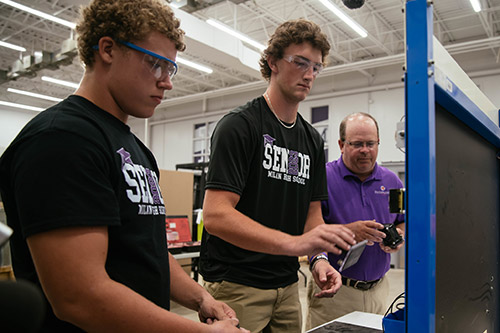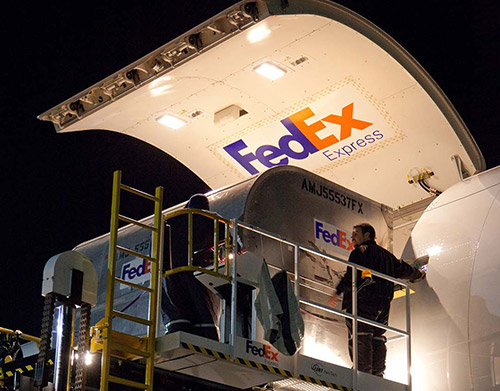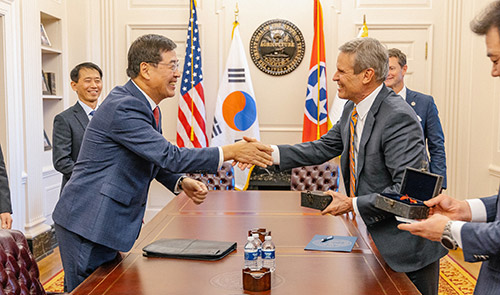When compared to other states, Tennessee’s business advantages have companies taking notice. From 2019 to today, Tennessee has landed nearly 500 projects, representing 87,000 new job commitments and $33 billion in capital investment.
A good portion of this total investment results from Tennessee’s highly successful foreign direct investment (FDI) efforts. The state has created an attractive business environment that has a global reach. State government has worked hard for decades to build FDI and export Tennessee-made products to foreign markets. As a result, the Volunteer State is home to more than 1,000 foreign-based businesses. Tennessee continues to proactively identify and recruit FDI opportunities and promote exports, which totaled more than $38 billion in 2022. Strong FDI growth reflects Tennessee’s pro-business outlook. Tennessee is a right-to-work state with no personal income tax. State and local tax burdens are some of the lowest in the country. Tennessee has the lowest debt per capita among U.S. states, according to The Tax Foundation. In May 2023, Governor Bill Lee signed the Tennessee Works Tax Act, the single largest tax cut in state history, that will provide more than $400 million in savings for Tennessee families and businesses while supporting future economic growth.
Tennessee continues to proactively identify and recruit FDI opportunities and promote exports, which totaled more than $38 billion in 2022. Transportation and Logistics
Manufacturers and their consumers expect fast delivery, which requires modern transportation infrastructure and technology. Tennessee’s central location allows Tennessee companies to access a majority of U.S. markets within a day’s drive. The state has nearly 12,000 miles of interstate highway, six commercial airports (including Memphis International Airport, one of the busiest cargo airports in the world), and 29 rail systems (six Class 1 railroads and 23 short-line railroads serving small communities and rural areas). The state is also home to the nation’s third-largest rail center (Memphis) and fifth-largest inland port (Memphis) in the U.S.
These transportation systems are well-connected with each other, making shipping fast and efficient, especially for “last mile” delivery, which is becoming increasingly important as a differentiator among shippers. These advantages, combined with a prime location, make Tennessee ideal for warehousing/logistics operations.

Labor is almost always at the top of the list for any company that is looking to relocate or expand, which makes Tennessee highly competitive with other states. Its dedicated and highly skilled workforce possesses a range of skills, many of them higher-tech and suitable for advanced manufacturing. Tennessee businesses can draw from the nearly 4,000 students in engineering, engineering technologies, and engineering-related fields who graduate from Tennessee universities and colleges every year.
Tennessee businesses can draw from the nearly 4,000 students in engineering, engineering technologies, and engineering-related fields who graduate from Tennessee universities and colleges every year. To further support workforce needs and create a steady pipeline of qualified candidates, the Governor’s Investment in Vocational Education (GIVE) initiative expands access to vocational and technical training for Tennessee high school students. The GIVE initiative invests millions of dollars in competitively awarded community grants to fund regional partnerships among high schools, industry, and Tennessee Colleges of Applied Technology (TCATs). Goals include building work-based learning/apprenticeship programs, creating market-driven dual-credit opportunities, and expanding informed career and technical education offerings.
Well-established companies in the state are also involved in strengthening the workforce at the regional level. For example, in partnership with TCAT, Tyson Foods has helped create and fund an industrial maintenance program in Gibson County. “We want to build a solid, entry-level foundation that fills industry and community needs,” said Rodney Ellis, technical education liaison for Tyson Foods.

Tennessee’s ongoing investments in its infrastructure, workforce, and tax policies continue to attract new companies to the state. For example, In-N-Out — a California-based restaurant chain — will invest $125.5 million and create more than 275 new jobs by building a 100,000-square-foot eastern territory office in Franklin. The office will support business functions ranging from operations management to HR and IT and serve as the base for launching restaurants in the state.
Other major announcements include:
- LG Chem: This project is the single largest announced FDI project in state history, a perfect fit for Tennessee’s long-established leadership in electric vehicle manufacturing. LG Chem will invest approximately $3.2 billion to establish a new cathode manufacturing facility in Clarksville, where it will support the U.S. electric vehicle battery value chain. Scheduled to be operational by 2025, the facility will employ more than 850 workers.
- WACKER: A manufacturer of hyper-pure polysilicon, WACKER will expand its existing campus in Charleston. The project will be a phased investment of more than $200 million over several years, creating 200 new jobs. This is the second major expansion for WACKER in Bradley County, a reflection of its high regard for the area and its talented workforce.
- Georgia Pacific: A key site selection factor for companies is a shovel-ready property. With that in mind, Georgia Pacific is constructing its $425 million manufacturing facility on a site in Jackson that it selected from a list of Select Tennessee Certified Sites. “Having an inventory of shovel-ready industrial sites gives Tennessee communities a leg up when recruiting new businesses to the state,” stated TNECD Commissioner Stuart C. McWhorter. Tennessee’s central location allows Tennessee companies to access a majority of U.S. markets within a day’s drive.
- Bridgestone: This $550 million investment at its Morrison facility in Warren County is in a rural part of Tennessee. Bridgestone’s expansion reflects its confidence in the local workforce and TNECD’s commitment to workforce training and development. The expansion will expand the facility’s footprint by 850,000 square feet and create 380 new jobs. “With new investment and new jobs, we are moving our Morrison plant forward and appreciate the state of Tennessee and Warren County’s committed and collaborative partnership,” said Paolo Ferrari, president and CEO of Bridgestone Americas.
“Tennessee is a great place to do business, and we applaud all the partners who help craft economic opportunities for our region,” said Warren County Mayor Jimmy Haley. “Whether its existing business expansion or new industry recruitment, we value every dollar invested in our county. A $550 million investment and 380 new jobs will be a game-changer for sure.” - Magna: One of the world’s largest automotive suppliers will invest more than $790 million to build the first two supplier facilities at Ford’s BlueOval City supplier park in Stanton, Tennessee. The company will also build a stamping and assembly facility in Lawrenceburg. This investment will result in approximately 1,300 new jobs across all three Tennessee locations, and production is scheduled to begin in 2025.




